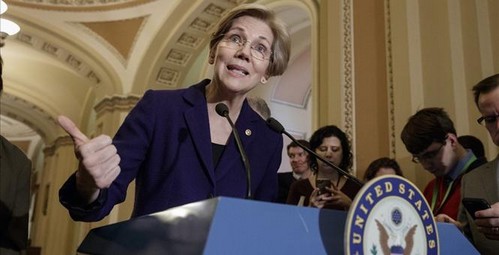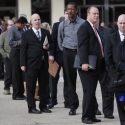(Dis)United We Stumble
President Trump’s executive order on immigration has more than its fair share of critics. Among them, apparently, is someone at the Department of Homeland Security. The leaked report indicating that thechildren of immigrants raised in America radicalize at a higher rate than their parents do was plainly meant to undercut the president’s order.
But regardless of what motivated the leak, the report underscores a serious problem with the process by which immigrants become Americans. In short, it’s broken. Our slogan “e pluribus unum” — Latin for “out of many, one” — has become a joke.
Many of America’s institutions no longer promote assimilation. And it isn’t only conservatives who are worried.
Consider what the distinguished liberal historian Arthur M. Schlesinger Jr. had to say in his book “The Disuniting of America.” He argued that a stress on ethnicity has benefits, but that “its underlying philosophy is that the United States is not a nation of individuals at all but a nation of groups, that ethnicity is the defining experience for Americans.” This dogma, he warned, “replaces assimilation by fragmentation, integration by separatism. It belittles unum and glorifies pluribus.”
The noted conservative William E. Simon Jr. has sounded the same alarm: “There are disturbing signs that here in America difference and separateness are becoming more pronounced than unity and harmony.” And the distinguished cultural historian Samuel P Huntington warns in this book “Who Are We?” that citizenship has been devalued and that a revival of national identity is crucial to America’s very survival.

What has gone wrong? Simon is right to trace the trend not to any basic change in the immigrant population — today’s newcomers are as willing as ever to be assimilated — but to the cultural revolution of the 1960s, which was led by elite young students and the post-college generation of the day. In the backlash to the war in Vietnam, authority was called into question, and the nation’s superiority was no longer accepted.
Patriotism itself became suspect, derisively equated with Rudyard Kipling’s jingoism: “To be born an Englishmen means winning the first prize in God’s lottery.” The American flag became a right-wing symbol, brandished by the people who beat up protest marchers. “Americanization” was seen as coercive, even ruthless – in the catch-phrase of the day, the equivalent of destroying a village in order to save it.
The cultural relativists largely succeeded in imposing their attitude on the political scene. But, as usual, the pendulum swung too far. If nothing was better than anything else, then nothing could be much worse. Morals were as relative as values; the criminal, molded by genes and environment, wasn’t really responsible for his or her crimes. And love of country was simply naïve and embarrassing.
Even Ralph Nader was brusquely rebuffed when he suggested that 100 of America’s biggest businesses should honor their country by reciting the Pledge of Allegiance at their annual meetings. Only one company agreed. Half never responded. The CEO of Aetna Insurance told Nader that his idea was “contrary to the principles on which our democracy was founded.”
In fact, the Pledge was on the wane even in the nation’s classrooms, where for decades it had marked the beginning of each school day. By one count, fewer than half of America’s teachers and students now recite it.
What matters, of course, isn’t the Pledge itself, but the ideals that it stands for. Today’s immigrants are encouraged to think, act and identify as a separate group, not to identify proudly as Americans. Can we be surprised that some of them would become easy prey for terrorist recruiters?
I doubt that the leaker of that DHS report was trying to force us to confront our assimilation problem. But that’s exactly what we need to do. Otherwise it’s only a matter of time before we cease being a nation entirely.





